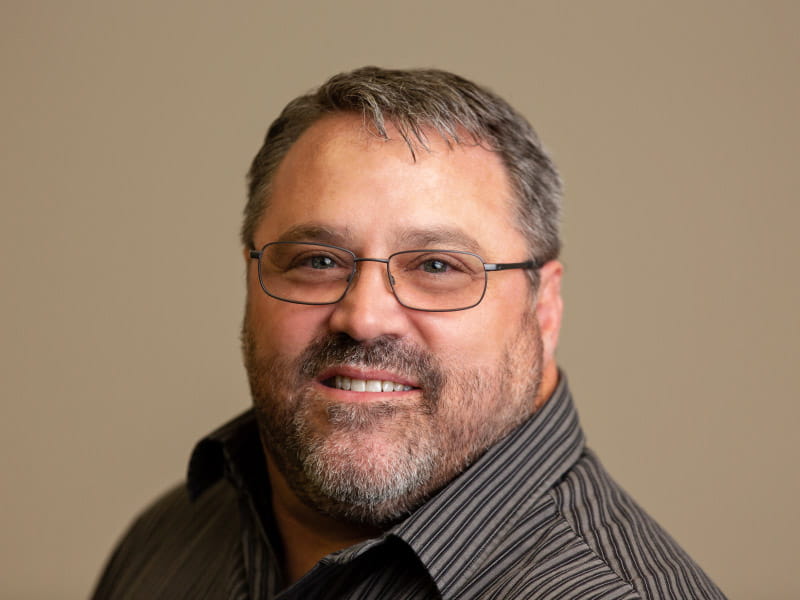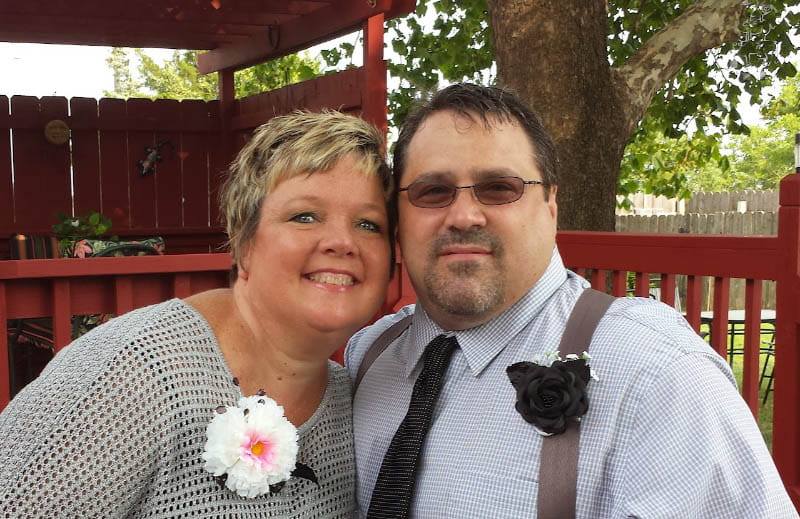The exploding fireworks sensation in 33-year-old's brain was a stroke – his second
By Diane Daniel, American Heart Association News

Bill and Marilyn Ramsey were excited about going to Galveston, Texas, to celebrate a friend's birthday. Their friend, a pilot, flew the couple, along with his wife, in a four-seater plane from their hometown of Wichita, Kansas. It was a tight fit, especially for four hours.
Once there, they were ready to play. They went out to sample the nightlife, getting back around 2 a.m. after hours of dining, drinking and dancing.
The next morning, Marilyn was in the shower when she called out for Bill to bring her the hair conditioner. He handed it to her and walked back into the bedroom.
Suddenly, he felt something like fireworks exploding in his head. He saw white flashes, then everything went black as he fell onto the bed.
A few seconds later, he opened his eyes. He couldn't see. The left side of his body tingled, as if it had gone to sleep.
Stepping out of the bathroom, Marilyn saw him curled up on the bed.
"What are you doing?" she said.
"Something really bad just happened," he said. "I'm completely blind."
"Right," she said, throwing a towel at him, assuming he was joking.
"Maybe I just need some fresh air," he said.
He stood up and felt his way to the balcony outside, gripping the railing.
This was the worst hangover he'd ever had, he thought.
Slowly his vision started to return. But not all of it.
Marilyn realized it was no joke. She suggested they go to the emergency room. Not wanting to ruin the weekend, Bill said, "We came down here to have fun, so let's just have fun."
They hit more restaurants and bars, getting back late again.

When he woke up the next morning, Bill again couldn't see. Marilyn and his friends urged him to go to a hospital. He promised he'd go to the doctor the next day, when they would be back home. Marilyn was so angry that she stopped speaking to him.
On Monday morning, his vision was still patchy, but he could see well enough to drive to the doctor.
"I'm not sure, but I think you've had a stroke," the doctor said.
"Doc, I'm 33," Bill said. "I couldn't have had a stroke."
"Your age doesn't matter," the doctor said. He sent Bill for an imaging test called a magnetic resonance angiogram, or MRA, to check the blood vessels and blood flow in his brain. After, Bill went back to work.
He'd just finished seeing one of his IT clients when the doctor called.
"You need to get to the hospital," he said. "Not only have you had a stroke, it's your second one."
Bill remembered it clearly. Five years earlier, he'd passed out and woken up on the floor of his living room. He felt a little off and had a hard time sleeping for several months. He'd chalked it up to work stress.
At the time, Bill was in great shape – only a few years removed from having been a competitive body builder while in the Navy.
Although at 33 he was no longer at the same level of fitness, he felt good and had regular checkups. His only issue was high cholesterol, which ran in his family.
Following the MRA results, Bill spent three days in the hospital. Doctors found that Bill had a hole between the upper chambers of his heart. It exists in everyone before birth, but most often closes shortly afterward.
Doctors thought a clot probably formed during the cramped flight to Galveston, slipped through the hole in his heart and worked its way up to his brain.
Two months later, doctors sealed the hole in Bill's heart.
After his second stroke, which happened in 2006, Bill had some permanent damage. Now 50, he has some numbness on his left side and some spotty vision. When exhaustion sets in, the left side of his face droops.
"I can tell when he's really tired," Marilyn said. "But Bill's brain is a computer. He's always on the go. Nothing gets in his way. I can't worry about him because that's just him."
Even so, Bill is more diligent about paying attention to warning signs.
"I am painfully aware how stupid the decision was to not go to the doctor immediately," he said of the fireworks sensation he felt in Galveston.
Last fall, during a work meeting, he started sweating profusely and couldn't think straight. He went directly to the emergency room. It turned out he had COVID-19.
Bill also uses his experiences to spread the word about recognizing the signs and symptoms of a stroke and that age is no barrier.
"I'm very vocal talking about these things," he said. "I especially want younger people to know that you can be any age and in the best of health and still have a stroke."
Stories From the Heart chronicles the inspiring journeys of heart disease and stroke survivors, caregivers and advocates.





